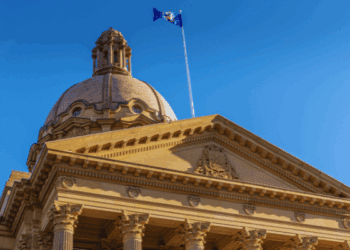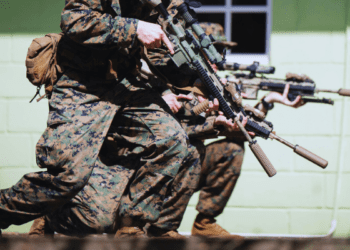October 11, 2011 – In his latest column for the Ottawa Citizen, MLI Managing Director Brian Lee Crowley discusses why Premier Dalton McGuinty may owe his re-election at least in part to Ontario voters’ view of the new federal political status quo in comparison to anything he did to earn the election himself or to the weakness of his chief opponent in the election, Tim Hudak. Full column below:
Ontario, in particular, has made almost a fetish of putting parties of opposing stripes in power in Ottawa and Queen’s Park
By Brian Lee Crowley, The Ottawa Citizen, October 8, 2011
This week’s elections in both Manitoba and Ontario confirmed that the real opposition to Ottawa’s power lies in the provinces, not on the opposition benches in parliament.
Ontario in particular has made almost a fetish of putting parties of opposing stripes in power in Ottawa and Queen’s Park. Go right back to the earliest days of Confederation and Sir John A. Macdonald’s great political nemesis. It certainly wasn’t federal Liberal leader Edward Blake. Until Stéphane Dion and Michael Ignatieff, Blake was the one and only federal Liberal Party leader never to serve as prime minister.
No, the great thorn in Macdonald’s side was Oliver Mowat, Liberal premier of Ontario. And once Ottawa shifted decisively from early Tory rule to Liberal rule, under Laurier, Mackenzie King and their successors, Ontario embraced the Tories provincially with enthusiasm. Except for Liberal premier Mitch Hepburn (himself first elected during the brief years of R.B. Bennett’s Tory rule in Ottawa) that Tory dynasty went on and on. Brian Mulroney’s Tory victory in Ottawa was a harbinger of Liberal David Peterson’s ascent in Ontario. And so on.
Of course there have been epic political battles in Ottawa between government and opposition — think of the infamous Pipeline Debate of 1956, or the bare knuckled brawl over Trudeau’s constitutional reforms — but most of the real battles of our political history have been ones between Ottawa and the provinces. And on these clearly voters have usually preferred to have champions of differing political hues representing them in Ottawa and the provincial capitals.
Historical examples are legion, but relatively recent ones include the National Energy Policy, some of Ralph Klein’s health care reform proposals, two Quebec referendums on sovereignty and the battles over cuts to provincial transfers that were integral to the great fiscal reforms of the 1990s.
There are lots of theories to account for this predilection of voters for governments of opposing stripes at the federal and provincial levels. One is that, in a country riven by regional rivalries and envy, local politicians find provincial nationalism to be electorally profitable. They find this easiest to do when they have no common party identification with Ottawa to confuse their loyalties.
Former Saskatchewan premier Tommy Douglas used to say that if you could run against Ottawa rather than the other parties in the legislature in a provincial election it was worth an extra 10 percent on your vote. He would know — he took one of the safest Liberal provinces in the country and turned it into a CCF/NDP stronghold, in part by clever management of latent suspicion of distant Ottawa.
Premier McGuinty may therefore owe his re-election, such as it is, at least in part to Ontario voters’ view of the new federal political status quo as to anything he did to earn that election himself or to the weakness of his chief opponent in the election, Tim Hudak. His lackluster performance clearly inspired no noticeable enthusiasm among Ontarians. On the other hand, the federal Tories now have a stable majority for the next four years, and a disorganized and fragmented opposition may give them a relatively free hand for longer than that. Circumstances like those have frequently brought a countervailing vote at the provincial level, even in provinces where the federal government does well electorally. That may have tipped the balance in McGuinty’s favour.
No doubt Stephen Harper will be somewhat disappointed by the outcome. He would have seen the election of a Tory government in Ontario as providing him both with an ideological ally in federal-provincial negotiations and as further evidence that his ambition to see the Tories displace the Grits as Canada’s dominant party is being realized.
But he should be careful what he wishes for. The re-election of the McGuinty government may in fact signal that Ontarians, at least, have accepted Harper’s dominance in Ottawa and simply done what they always do — prevented any one party from holding all the cards.
And one of the explanations for the dominance of the Tories in Ottawa is that the party’s talent pool that for so long ran Queen’s Park moved to Ottawa once the Tories took power there. Similarly the Liberal eclipse in Ottawa has surely sent a number of their most skilled operatives to Toronto (and Quebec City), where jobs for deserving and needy Liberals are more plentiful than almost anywhere else in the country. It may be that no party has the depth of talent to run too many of our biggest governments all at once.
Dalton McGuinty’s near-death electoral experience this week will likely cause him to cast about for a new strategy to give him renewed momentum and political capital. Judicious picking of fights with Ottawa is a tried and true path to provincial political success. My post-election forecast: stormy weather on the federal-provincial front.
Brian Lee Crowley is the Managing Director of the Macdonald-Laurier Institute, an independent non-partisan public policy think tank in Ottawa: www.macdonaldlaurier.ca.




